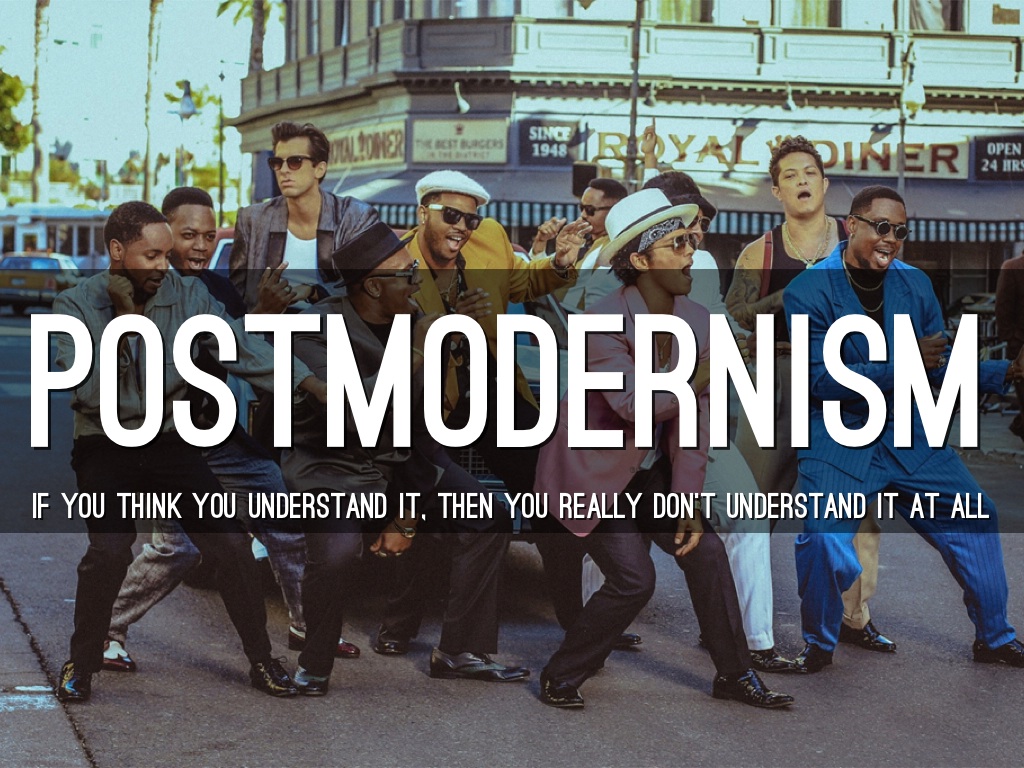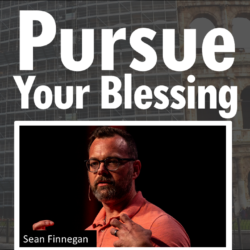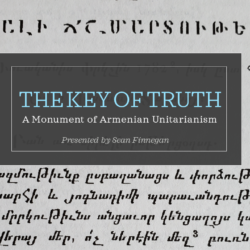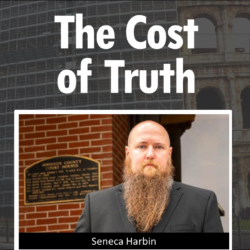Today, in part three of our series on postmodernism we ask the question, “How is postmodernism affecting our world today?” Pastor Jacob Ballard explains how narrative, experience, community, and subjective truth are key ways that postmodern-minded people go about making sense of reality. Then he shows how movements like Black Lives Matter and LGBTQ+ rights draw strength from these postmodern ways of thinking.

—— Links ——
- Find out more about Jacob Ballard at the Timberland Bible Church website
- check out episode 358 A Christian Perspective on BLM (Russell Brown) and 292 A Change of Affection (Becket Cook), which was recorded just after Cook lost his job for no longer agreeing with the gay lifestyle
- If you’d like to support Restitutio, you can donate here.
- Leave a voice message via SpeakPipe with questions or comments
- Intro music: Good Vibes by MBB Attribution-ShareAlike 3.0 Unported (CC BY-SA 3.0) Free Download / Stream: Music promoted by Audio Library







Hey, Sean,
I loved this series with Jacob Ballard. I think it’s so important for us to deal with society in its reality, and not fail to engage well by focusing on what we wish the culture were like. I am grateful for this thoughtful content and am encouraged again to seek understanding and love in my interactions with strangers.
I do want to say that this third episode really made it clear why this topic is important today, while the first two left the listener perhaps wondering. Obviously, there are many considerations that go into when to cover a part of a topic, but you might consider putting these purpose-driven episodes first in a series like this. I listen to every episode, but it could be beneficial for listeners who don’t to understand the weight of a series off the bat.
You correctly write John :
..It is important for us to deal with society in its reality..”
Thankfully, God’s Word doesn’t leave us in the dark – 2 Tim. 3:1-5 increasingly well describes our current growing post-Christian western world, which is retrogressing (not ‘progressing’) in so many moral respects (cf. Romans 1:18-32).
The paradox of full-blown “Postmodernism” (a philosophical theory originated by arguably, certain third rate, twentieth century philosophers) is that in actual practice very few people are ‘postmodernists’.For the overwhelming majority of people their personal ‘take on reality’ – whether it be in the realms of politics, religion, philosophy, society, sexuality, ethics, personal behavior, et cetera, is actually grounded in some genuine form of perceived objective ‘rationality’. Atheists think it is ultimately rational to be atheists. Egocentric, hedonistic nihilists believe that nihilism is the rational and reasonable response to reality, Buddhists think its rational to be Buddhist – and so, and so forth. This kind of phenomenon has essentially always been largely the case – in both the pre-Christian world, and in our increasingly post-Christian world.
From a Christian perspective, where ‘postmodernist’ philosophy does contains a grain of ‘truth’, that is applicable to Christianity itself, is in the realm of certain intellectual doctrines. For example, is it a legitimate Christian doctrine that Christian women today can be congregational ‘elders’, and/or congregational ‘pastors’ ? As I understand it, some Christians associated with ‘The Church of God (General Conference) would say ‘Of course’; while others (like ‘The Restoration Fellowship’) would say ‘Of course not’. (cf. Romans 14:5 : ” Let each person be fully convinced in their own minds ! ” ).
I’ve recently had to deal with ‘post-modernists Christians’, or as they called themselves ‘progressive Christians’.
It was very much a case of everything they said was an absolute truth, even though everything else was apparently relative!
It led to watering down everything that many hold dear. They were staunch supporters of the Bible’s authority for instance, yet diluted it to the extent that we should only accept the lesson of loving our neighbour as our Golden Rule. So any fixed notion of sin was dismissed and replaced with, ‘doing everything out of love’. Which might sound fine, until you realise that it was used as an excuse for adultery and all sorts. One could kill ‘out of love’, one could sleep with another man’s wife ‘out of love’ as long as everyone involved agreed etc.
A definite regression towards ‘everyone doing what is right in their own eyes’, because sin is purely subjective in their minds.
And I couldn’t talk about sin and repentance because that made people ‘feel bad’ about themselves!
Which is a basic dynamic of Christian life as far as I’m concerned, because it puts us at our master’s feet in humility, understanding how much we need him.
For them it was all hyper-grace and feeling good about yourself, comforted that their sin was ‘out of love’!
It’s not easy to counter it, but the starting point is understanding it.